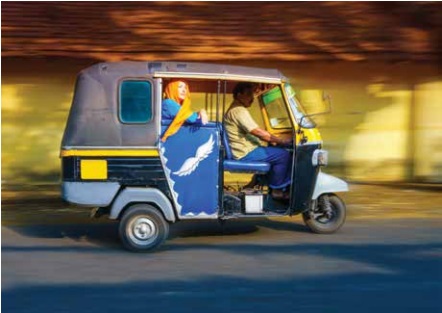Modern times come with a lot of modernity in the philosophical, technical and social terms. But with these advances also come other factors that are increasing with day, one of them is Population, the global population keeps on proliferating as every single day passes and it further has effects on other phenomena as well. In the Indian context, the population has a greater impact on mobility and its market.
Times have come when in India, where the trend is shifting toward the public and shared transportation system. Lacking infrastructure and parking is causing people to back out from vehicle ownership/private vehicle ownership. These factors are also leading to the growth of alternate new mobility in India.
Future of Mobility
Today, the mobility industry is undergoing a fundamental transformation from private transport as the only means of mobility, to a shared, more door-to-door and integrated approach. Mega Trends like urbanization, pollution, congestion, connectivity, and globalization are powering the shift away from private vehicle ownership to new business models like car sharing, carpooling, ride-hailing, integrated mobility, and dynamic shuttles. Technology-enabled devices can now deliver real-time, door-to-door, multi-modal travel encompassing pre-trip, in-trip and post-trip services that yield convenience, time and cost savings.
Thus this new mobility market that is consecutively growing is expected to touch $90 billion by 2030. The Revenue from the taxi cluster is expected to exceed $61 billion by the time, revenue from ride-hailing is expected to hit $43.3 billion by 2025.
Steps Taken To Develop Mobility
Hyundai Motor Company is in advanced discussions with domestic ride-hailing company Ola, which could see the South Korean automaker invest $250-300 million in the Bengaluru-based company. Hyundai could pick up a 4% stake in Ola, which has been on a fund-raising spree over the past few months, for a valuation of about $6 billion, the highest the Bhavish Aggarwal-led company has commanded thus far.
Nevertheless, Less than 10 percent of income is spent on transportation in India. Indian cities spend around $35 per capita on transportation, which is very low compared to the global average of $650. The annual transportation budget is between $26 billion to $70 billion in five major Indian cities, while in other countries it ranges from $394 billion to $2.113 trillion. Thus, this new mobility market of shared transportation will prosper with time.














Add Comment